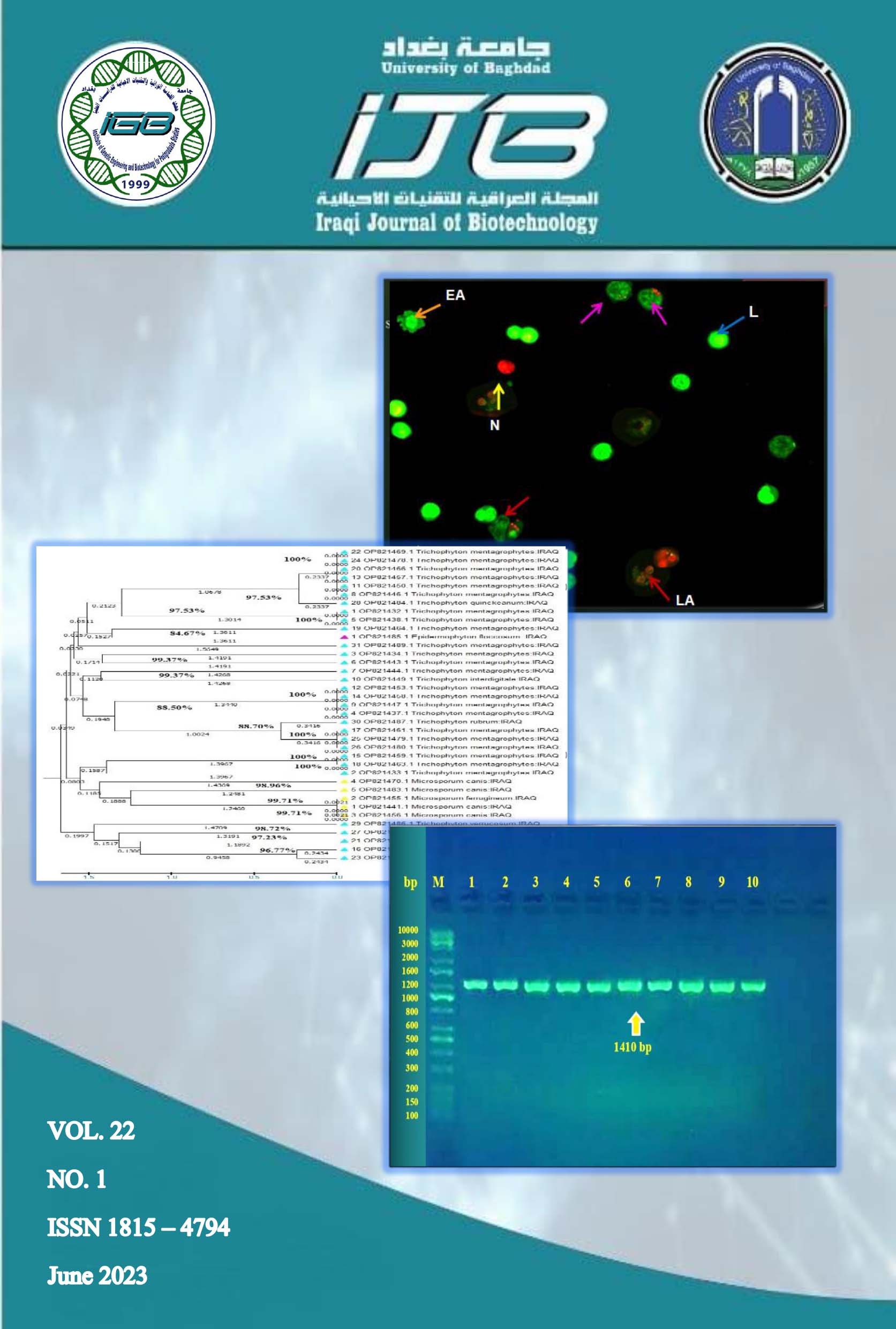The Role of Long Non Coding RNA ANRIL Gene Expression and Serum Interleukin-27 Level in Metastasis of Breast Cancer Patients
Abstract
Breast cancer is a heterogeneous disease and is the most common and prevalent form of malignancy diagnosed in women. The antisense non-coding RNA in the INK4 locus (ANRIL) belongs to long non-coding RNA family is overexpressed in several cancers including breast cancer. The study aims to understand the role of ANRIL in breast cancer this study investigated ANRIL expression in breast tumors using RT-qPCR. Additional assay for IL-27 were used in this study to evaluate the role of IL-27 in breast cancer metastasis. The study included 100 histopathologically confirmed with breast cancer. After blood collection, the serum was separated and divided into two aliquots, for total RNA extraction; cDNA synthesis and serum Interleukin-27 measurment. The ANRIL over expressed in patients with breast cancer (7.779940883) fold times compared to the healthy controls group (1.038805018). The fold change for the stages I, II, III and IV were (4.297018327, 5.553563985, 6.757504959 and 11.63189562) respectively. Twenty five cases with metastasis and fourty nine cases with lymph node involvement showed positive correlation with ANRIL expression. The levels of serum IL-27 were significantly increased in patients with breast cancer than in the control group (P=0.004). In addition, an elevation in serum IL-27 levels noticed in patients with metastasis (P=0.0001). Moreover, the serum levels of IL-27 was elevated in stage IV patients compared to stage I, II and III (P= 0.002, 0.0021 and 0.002 respectively). In conclusion these data indicate that ANRIL is highly expressed in malignant breast cells, and it may function in breast cancer prognosis, and the IL-27 may be a new prognostic biomarker of metastatic breast cancer.


